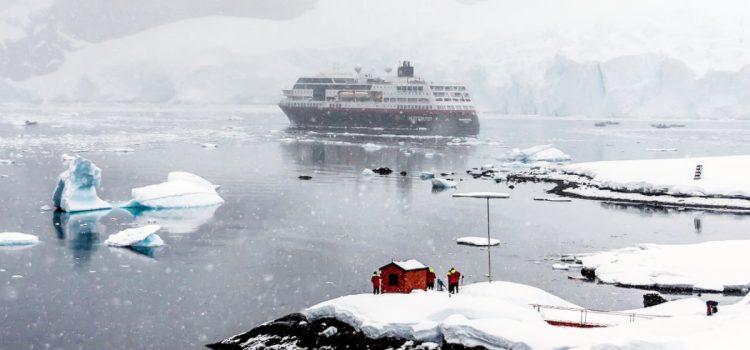D. Benjamin Reeder, Ph.D. Research Professor Department of Oceanography Naval Postgraduate School, Monterey, CA, USA *Zoom only* Meeting ID: 963 5962 3640 Passcode: OREseminar https://hawaii.zoom.us/j/96359623640 Arctic climate is important globally and regionally, in terms of its effects on global temperatures, global sea level, commercial activities and native coastal communities. The Arctic energy budget is driven by atmospheric temperatures, cloud cover, wind patterns, freshwater discharge, oceanic forcing and sea ice cover. Sea ice cover is particularly important because it buffers air-sea heat flux and strongly influences Earth’s absorption of solar radiation through ice-albedo feedback mechanism. Understanding the relative contributions of all
Profs. Gedikli and Francis awarded NSF grant: Navigating the New Arctic

Navigating the New Arctic (NNA) address convergence scientific challenges in the rapidly changing Arctic. Arctic research is needed to inform the economy, security and resilience of the Nation, the larger region, and the globe. NNA empowers new research partnerships from local to international scales, diversifies the next generation of Arctic researchers, enhances efforts in formal and informal education, and integrates the co-production of knowledge where appropriate. This award fulfills part of that aim by addressing interactions among natural and environments in the following NNA focus areas: Data and Observation, Education, and Global Impact. Due to rapid warming in the Arctic,
Seminar: Regional Scale Numerical Modeling of Wave Propagation and Transformation in Icy Waters – Capabilities and Challenges
Hongtao Li, PhD Centre for Sustainable Arctic Marine and Coastal Technology Department of Civil and Environmental Engineering Norwegian University of Science and Technology (NTNU), Trondheim, Norway In the past several decades, it has been observed obvious diminishing trend of ice cover in the polar regions. This opens the possibility for using Northern Sea route all year round. Nevertheless, with the retreat of ice cover, the fetch for waves to grow also increases. Consequently, wave climate deteriorates in both Arctic and Antarctic. In the meantime, the human activities in these regions such as fishing, tourism as well as exploration of hydrocarbon
